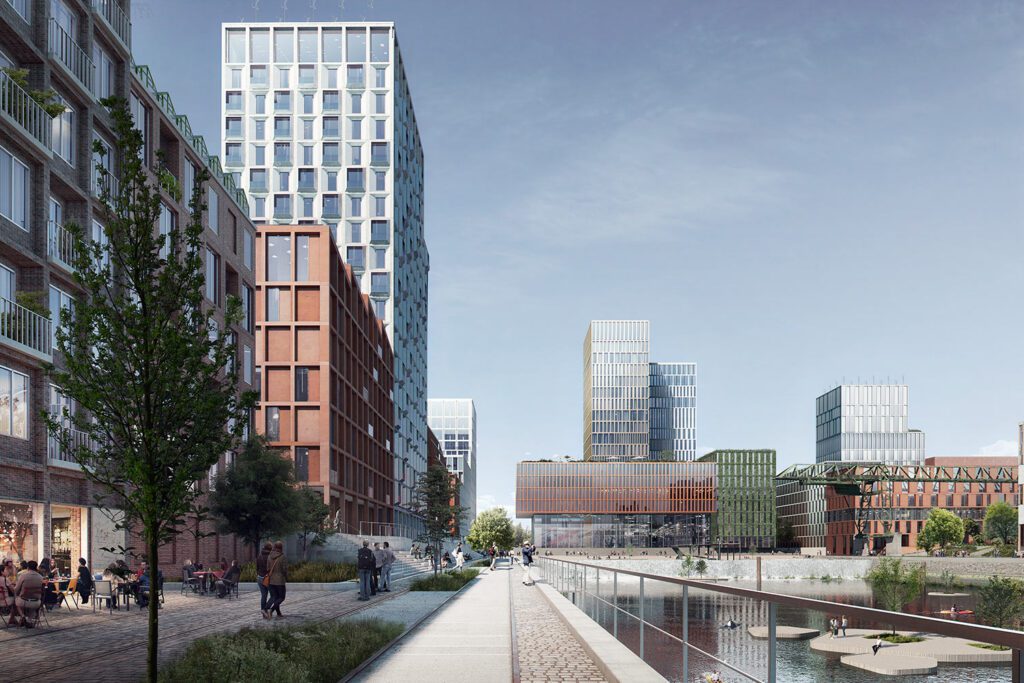GSR21: circular economy and resource efficiency
A stark thought piece from the Ellen MacArthur Foundation1 noted a renewable energy transition would only address 55% of global greenhouse gas emissions. The remaining 45% is from industry, agriculture and land use, that is, what we consume as an industry, in our workplaces and in our everyday lives.
In addition, more than 90% of biodiversity loss is due to the extraction and processing of natural resources2. A paradigm shift to redefine our relationship with resource consumption is clearly needed to restore planetary health.
With the construction industry worldwide responsible for around 60% of material use and 10% of greenhouse gas emissions3, Buro Happold, together with our clients and collaborators, can truly make a difference.
Buro Happold is proud to have worked in partnership with C40 Cities since the launch of its global Clean Construction Programme in 2019. It has undertaken a series of deep dives into cities around the world to help mega-cities transition to resource-efficient, zero-emission construction, which also delivers healthier buildings and better air quality to millions around the world.

In March 2021, our research, commissioned by the Aldersgate Group, Fostering Prosperity4, reviewed the role of environmental regulations in driving innovation and creating market opportunities. The research identified potential major systems benefits from an effective transition to a circular economy. These included clean growth and jobs, health and wellbeing and climate resilience. However, more policy on driving collaboration within and across sectors is needed to defragment the supply chain.
This recommendation complements our ongoing support of the UKGBC’s Circular Economy Programme. The principal aim is to reinforce the business case for change, examining metrics to measure and drive success, as well as clarifying the co-benefits of embodied carbon reduction and strengthening the link to wider environmental social governance reporting.
We want our clients to have the appetite to push boundaries with us. Our engineers believe strongly that circular economy principles should be integrated into all our projects as the norm, supplemented by the latest thinking and innovation around delivering circular buildings, masterplans and cities. In April 2021, we partnered with consultants Shift Actions to undergo an intense innovation sprint around circular economy to unpack industry readiness and appetite for change. As part of this sprint, we interviewed 24 clients, architects and collaborators. 8% identified circular economy as a business priority, with the remaining group indicating it as an emerging priority. They identified the key barriers to its adoption as:
- Clear definition for adoption on a project
- Consistent value framing
- Metrics for accountability and measuring success
These findings further reinforce the importance of our work with the UKGBC and C40 Cities, complemented by our ongoing internal investment in normalising and innovating around the circular economy principles. This includes our Re:boot campaign to help reimagine stranded assets and a C:Lab project exploring urban mining, both of which underpin and strengthen the case for making circular economy central to our design work.
References:
- Fixing the economy to fix climate change (ellenmacarthurfoundation.org)
- Biodiversity – overview (ellenmacarthurfoundation.org)
- 2020 Buildings GSR_FULL REPORT.pdf (globalabc.org)
- Fostering Prosperity (aldersgategroup.org.uk)





